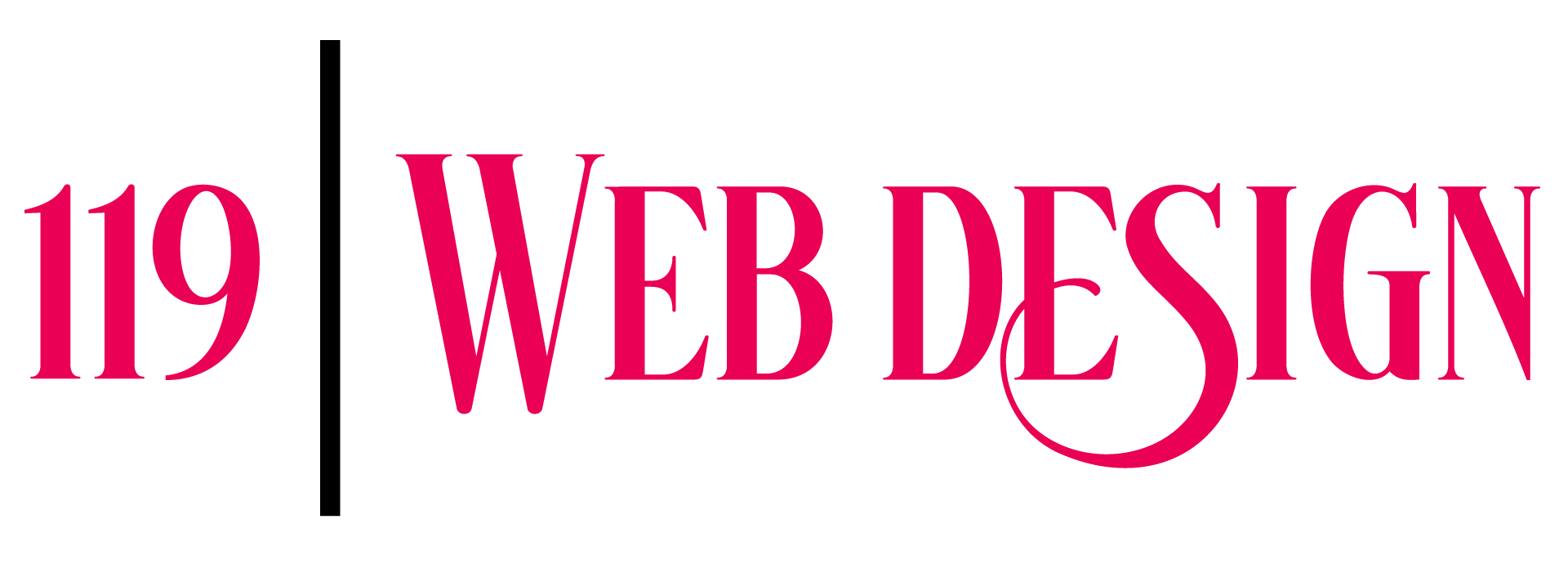In today’s digital landscape, a custom website design has become a crucial component of any business’s online presence, allowing them to establish a strong brand identity, showcase products or services, and drive conversions. With numerous options available, it can be overwhelming to determine how much a custom website design costs and which tools to use to bring your vision to life. However, understanding the factors that affect custom website design prices and knowing where to look for affordable solutions is essential to achieving your online goals.
Determining the Cost of a Customized Website
When it comes to developing a customized website, the cost can vary widely depending on several factors. In this article, we’ll break down the average costs associated with creating a website and explore what influences the final price.
Average Costs
According to various studies, the average cost of website development falls within the range of $2,000 and $35,000. However, this figure doesn’t account for other essential expenses like design, hosting, and maintenance. A more accurate estimate would be:
Basic website (5-10 pages): $2,000-$7,000
Standard website (11-20 pages): $5,000-$15,000
Advanced website (21+ pages): $8,000-$35,000
Factors Influencing Website Development Costs
Several factors contribute to the overall cost of building a website. These include:
Number of Pages
The more complex the website, the higher the cost.
Development Time
Projects requiring extensive customization or complex features take longer to complete and incur higher costs.
Technology Used
Utilizing cutting-edge technologies like React or Angular may require more expertise and resources, increasing the bill.
Designer/Developer Rates
Freelance web developers’ rates can significantly impact project costs, especially for high-end or bespoke designs.
Hourly Rate of Freelance Web Developers
To give you a better idea of what to expect, here’s a breakdown of the average hourly rate for freelance web developers:
Junior developer: $15-$25 per hour
Mid-level developer: $25-$40 per hour
Senior developer: $40-$75 per hour
Note: These figures are approximate and may vary depending on location, experience, and other factors.
Custom Website Design: Understanding the Cost and Benefits
When it comes to designing your own website, many factors contribute to the overall cost. One crucial aspect to consider is the experience level of the designer, as well as the tools and software used.
Making a decision on how much to spend on custom website design can be difficult, but having a clear understanding of the options available can help guide your decision-making process.
The Cost of Hiring a Professional Web Designer
To give you a better understanding of what to expect, here’s a breakdown of the estimated costs involved:
- Basic website design (template-based): $500-$2,000
- Custom website design (unique layout and design elements): $2,000-$10,000
- E-commerce website design (including online store functionality): $5,000-$20,000
In addition to the initial design cost, ongoing maintenance and updates will incur further expenses. These may include:
- Monthly hosting fees: $100-$500
- Domain registration: $10-$50 per year
- Website updates and maintenance: $200-$1,000 per year
A study published in the Journal of Marketing found that investing in a custom-designed website can increase sales by up to 25%. With the numerous benefits of having a professionally designed website, it’s essential to allocate sufficient funds for a high-quality design.
Pricing and Value Alignment
Ultimately, the cost of hiring a professional web designer depends on various factors, including the scope of the project, the designer’s experience, and the desired outcome.
While the costs mentioned above serve as a general guideline, it’s crucial to discuss specific requirements and expectations with potential designers to determine a fair price.
Some popular platforms, such as Upwork and Freelancer, offer competitive pricing and access to a vast pool of experienced designers.
In conclusion, while the cost of hiring a professional web designer can seem daunting, it’s essential to prioritize quality over affordability. By allocating sufficient funds and selecting a reputable designer, you can create a visually stunning and functional website that drives business growth and increases online visibility.
Learn More About Custom Website Design Cost

To Create a Custom Website: A Comprehensive Guide
Step 1: Define Your Website Goal and Target Audience
Creating a custom website involves several steps that require careful planning and execution. Before diving into the technical aspects, it’s essential to determine the purpose of your website. What do you want to achieve with your website? Who is your target audience? Answering these questions will help you create a clear vision for your website and guide your decision-making throughout the process.
For example, if you’re creating a website for an e-commerce store, your goal might be to increase sales revenue, while a blog might aim to establish thought leadership in its niche. Understanding your target audience will also inform your content strategy, navigation, and overall user experience.
Step 2: Choose Your Website Builder
With numerous website builders available, selecting the right one can seem daunting. Consider factors such as ease of use, customization options, and scalability when making your decision.
Some popular website builders include WordPress, Wix, Squarespace, and Weebly. Each has its strengths and weaknesses, so take some time to research and compare features before making a choice.
Step 3: Register Your Domain Name
Your domain name is the address people will use to access your website. Choosing a unique and memorable domain name is crucial for branding purposes. You can register your domain name through various registrars, such as GoDaddy or Namecheap.
Make sure to select a domain extension that suits your website’s purpose, such as.com,.net, or io.
Step 4: Select a Web Hosting Plan
Web hosting is essential for storing your website’s files and making them accessible to users. When choosing a web hosting plan, consider factors such as storage space, bandwidth, and customer support.
Shared hosting is suitable for small websites or beginners, while virtual private servers (VPS) and dedicated hosting cater to larger or more complex sites.
Step 5: Pick Your Template
Once you’ve chosen your website builder and registered your domain name, it’s time to select a template. Templates provide a starting point for designing your website, often featuring pre-designed layouts and elements.
Browse through your website builder’s template gallery to find inspiration and choose a template that aligns with your brand identity.
Step 6: Customize Your Template
Customization is key to creating a unique website that reflects your brand. Use your website builder’s drag-and-drop editor or coding skills to modify your template.
Add your logo, adjust font sizes and colors, and customize the layout to suit your needs.
Step 7: Build Your Site Structure
A well-structured website ensures easy navigation and improves user experience. Organize your pages into categories, such as home, about, services, and contact.
Use clear headings, concise descriptions, and relevant keywords to create a logical and intuitive site hierarchy.
Step 8: Add Useful Pages
In addition to your homepage, you’ll need to create other essential pages, such as about, services, and contact pages.
The about page provides insight into your business or personal background, while the services page outlines the value proposition.
The contact page serves as a hub for users to get in touch with you, whether through email, phone, or social media.
Additional Tips and Recommendations
* Ensure mobile-friendliness: With most internet users accessing websites via mobile devices, it’s essential to optimize your website for responsive design.
* Optimize images: Compressing images reduces file size and improves page load times.
* Implement SEO best practices: Use relevant keywords, meta tags, and descriptive titles to enhance your website’s search engine ranking.
* Regularly update content: Fresh content keeps visitors engaged and signals to search engines that your website is active and worthy of crawling.
By following these steps and incorporating these tips, you’ll be well on your way to creating a stunning, functional, and SEO-friendly custom website.
A Professionally Designed Website: Essential Costs and Considerations
The cost of a professionally designed website can vary widely depending on several factors such as the type of website, number of pages, complexity of design, and technology requirements.
Development Costs
- BASIC WEBSITE WITH 5-10 PAGES: $2,000 – $5,000
- STANDARD WEBSITE WITH 15-20 PAGES: $5,000 – $10,000
- ADVANCED WEBSITE WITH 25-50 PAGES: $10,000 – $20,000
You can check website builders like Wix, Squarespace, and Weebly for affordable solutions (Wix), but keep in mind that these options may limit your flexibility and customization options.
Design Costs
CUSTOM LOGO DESIGN: $500 – $2,000
WEBSITE LAYOUT AND DESIGN: $1,000 – $5,000
Clutch provides valuable insights into the top web design companies in the industry.
Content Creation Costs
WRITING HIGH-QUALITY WEBSITE CONTENT: $500 – $2,000 PER PAGE
PHOTOGRAPHY AND VIDEOGRAPHY SERVICES: $500 – $2,000 PER HOUR
For inspiration, check out Design Milk for stunning website designs and layouts.
Maintenance and Updates Costs
MONTHLY HOSTING FEES: $100 – $500
QUARTERLY WEBSITE UPDATES: $500 – $2,000
Understanding the Cost of Custom Website Design
The cost of creating a custom website can vary greatly depending on several factors such as the platform you use, design complexity, additional functionalities, and whether you hire a professional web developer.
Factors Affecting Custom Website Design Prices
In general, you can expect to pay anywhere from $500 to $5,000 for a one-page website.
According to a study by Clutch, the average cost of developing a website ranges from $2,500 to $8,000, depending on the services required.
However, this price may not include ongoing maintenance costs, which can add up over time.
Website Builder Options and Professional Development Costs
Some popular website builders, such as Wix and Squarespace, offer affordable options starting at around $10 per month.
These platforms often come with drag-and-drop tools and templates, making it easier to create a website without extensive coding knowledge.
On the other hand, hiring a professional web developer can result in a higher upfront cost.
According to Upwork, the average hourly rate for a web developer is around $75-$100 per hour.
With this level of expertise, you can expect to pay upwards of $5,000 for a custom-built website.

How to Hire a Website Designer: A Comprehensive Guide
When looking to hire a website designer, it’s essential to understand what they do, what you can expect from the process, and what questions to ask before making a decision.
What Does a Website Designer Do?
A website designer is responsible for creating visually appealing and user-friendly websites that meet your business needs. Their tasks may include:
- Creating wireframes and mockups of the website
- Designing the layout, color scheme, and typography
- Developing a responsive design that works across various devices and browsers
- Conducting usability testing and gathering feedback
- Ensuring compatibility with different operating systems and devices
How Much Does it Cost to Hire a Website Designer?
The cost of hiring a website designer varies widely depending on factors such as location, experience, and services offered. On average, you can expect to pay between $500 and $5,000 for a custom-designed website.
How Long Does a Website Design Project Take?
The length of a website design project depends on the complexity of the site, the number of revisions required, and the experience of the designer. On average, a simple website design project can take anywhere from 2 to 6 weeks, while a complex project may take several months.
What Questions Should You Ask Before Hiring a Website Designer?
Before hiring a website designer, it’s crucial to ask the right questions to ensure you’re getting the best possible service. Here are some questions to consider:
- What is your experience with website design?
- Can you show me examples of your previous work?
- How do you approach the design process?
- What tools and software do you use?
- Can you provide references or testimonials from previous clients?
- How do you handle revisions and changes?
- What is your timeline for completing the project?
- What is included in the final price, and what are any additional costs?
Tips for Finding the Perfect Website Designer
Finding the right website designer requires research, patience, and clear communication. Here are some tips to help you find the perfect professional for your project:
- Look for designers who have experience with your industry or niche
- Check their portfolio and reviews from previous clients
- Ask about their design process and how they approach challenges
- Ensure they have the necessary skills and certifications
- Discuss your budget and what services are included in the final price
Recent Studies on Website Design and User Experience
Several studies have highlighted the importance of website design and user experience in driving conversions and engagement. Some recent findings include:
- A study by Adobe found that 75% of users are more likely to engage with a website that has a clear and concise navigation menu
- A study by Nielsen Norman Group discovered that users prefer websites with simple, intuitive interfaces and minimal clutter
- Research by comScore showed that mobile users are more likely to abandon a website if it takes too long to load
Incorporating the Latest Trends and Methodologies in Website Design
Incorporating the latest trends and methodologies in website design can help you stay ahead of the competition and drive better results for your business. By prioritizing user experience, simplicity, and clarity, you can create a website that resonates with your target audience and drives real results.
The Importance of a Custom Website Design
A custom website design is a unique solution tailored to meet the specific needs and goals of a business or organization.
What Makes a Custom Website Unique?
A custom website design differs from a standard website design in several ways:
- A custom website is built specifically for a particular client or business, taking into account their unique needs, goals, and target audience.
- A custom website design is often more visually appealing, intuitive, and user-friendly, resulting in improved conversion rates and customer satisfaction.
- A custom website design can be tailored to meet specific industry or niche requirements, setting a business apart from its competitors.
Learn how to create a custom website design with our expert tutorial.
How Much Does a Custom Website Design Cost?
The cost of a custom website design varies widely depending on factors such as the complexity of the design, the technology stack, and the expertise of the developer.
According to WebDesign.org, the average cost of a custom website design ranges from $10,000 to $50,000 or more.
For example, a simple custom website design may start at around $10,000, while a complex custom website design with e-commerce functionality may cost upwards of $50,000 or more.
Read our comprehensive guide to web design costs and learn more about the factors that affect the cost of a custom website design.
Get an estimate for your custom website design project with our expert team.

0 Comments